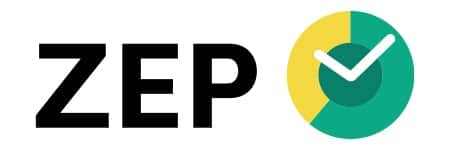Software for recording working hours
Accurate timekeeping is essential for the success of your business. It accurately documents employee hours, enables comprehensive evaluations and precise accounting. Our modern time recording software replaces manual timesheets and tracks times effortlessly, accurately and digitally.
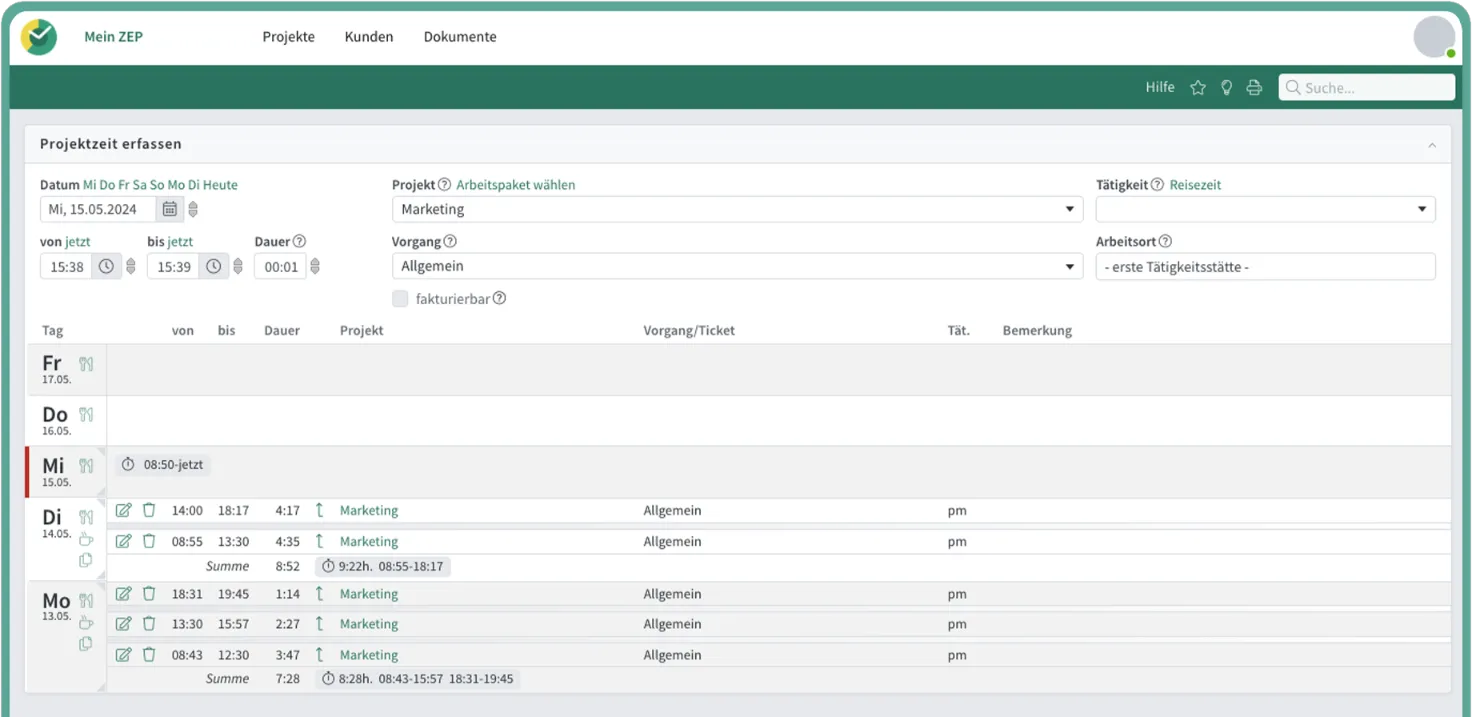
Record your working hours conveniently via RFID chip or card as you come and go. Any overtime is displayed immediately.
With ZEP, your time recording is secure and available at all times. Your data is stored in German data centres in compliance with data protection regulations.
Manage your employees' working time precisely and paperlessly with ZEP. No need to fill in timesheets and optimise your workflows.
Seamless time recording
Record daily working time - Advantages
What are the advantages of recording working hours on a daily basis? Compliance with the Working Hours Act as well as the requirements of the European Court of Justice and the additions in the Federal Labour Court ruling are guaranteed. Our time recording software fulfils all court requirements of the ECJ as well as the requirements of the Federal Labour Court of September 2022. You receive an overview of plus and minus hours. Time recording on the computer using working time software enables flexible working time models, such as flexitime, whereby you can manage absence planning directly online.
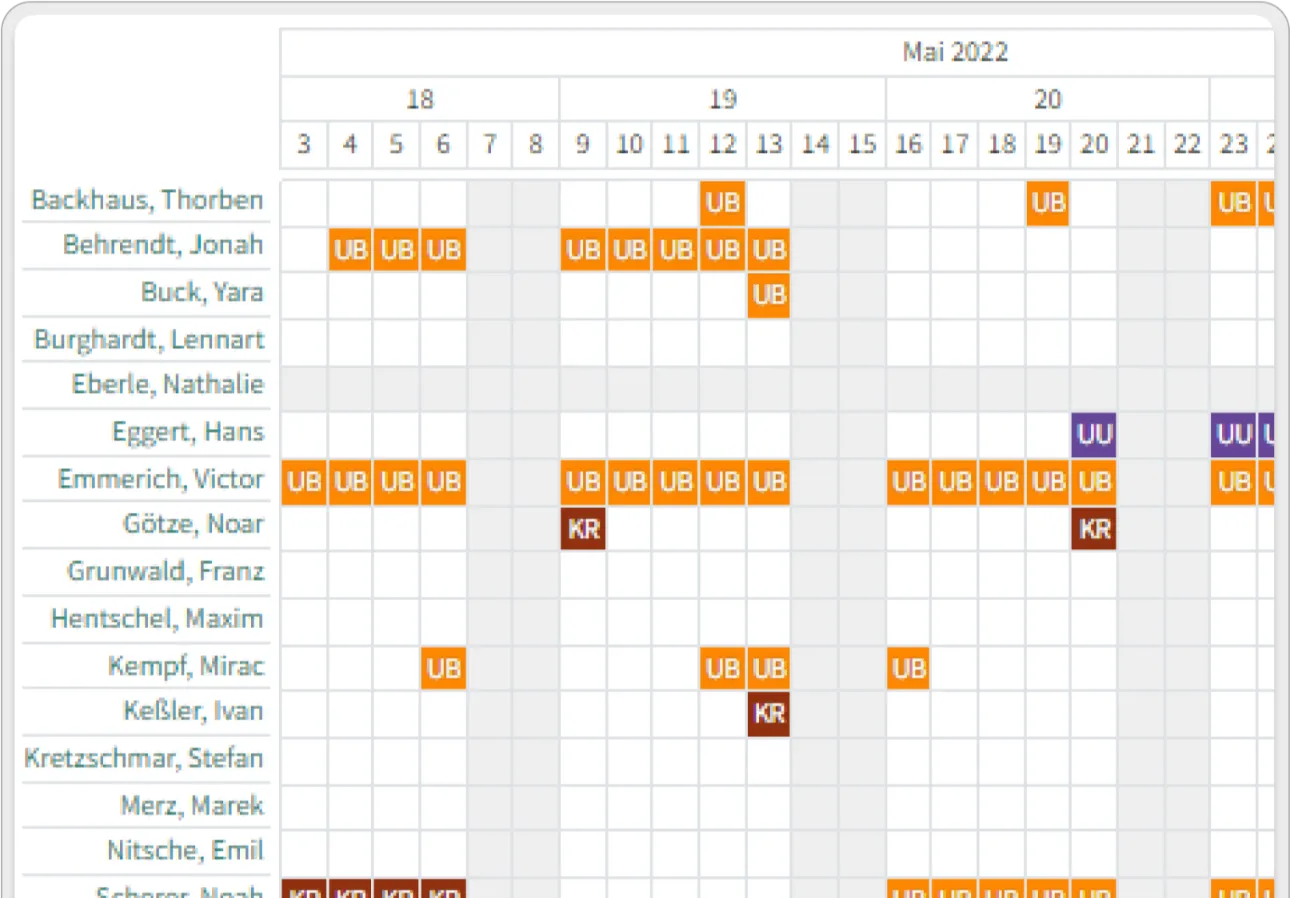
Mobile time tracking
Via smartphone or tablet
Our digital time clock allows you to easily take time recording with you via app. Your employees record their working hours on their mobile phones in the ZEP Clock App for Android and iOS and see their timesheet in real time. Working times can also be recorded on a tablet or web-based on a computer. Online time recording in the cloud is automatically synchronised with the system. This ensures that none of your employees' working and break times are lost!
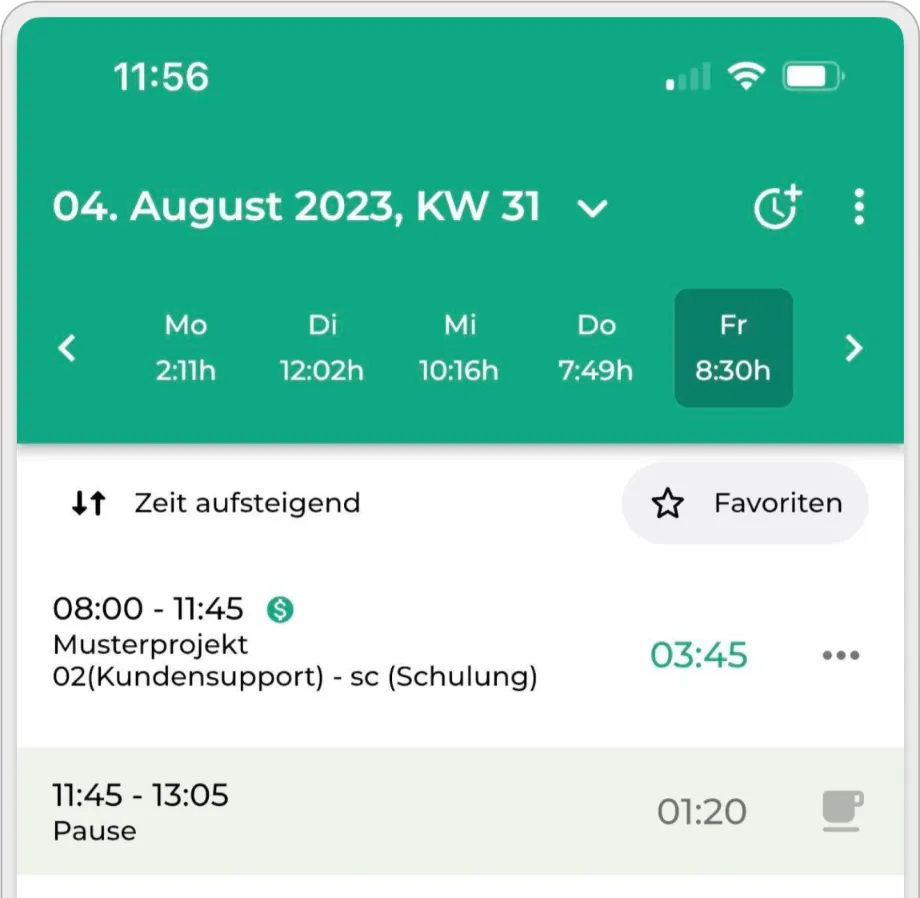
Efficient time recording systems
From working time recording to holiday management
Would you like to know what our digital working time recording solution has to offer?
- Seamless & minute-by-minute time recording of employees without manual working time recording via Excel
- Mobile App for recording working hours Enables precise tracking of attendance/absence, even in the field
- Export quick evaluations as pdf, Word or OpenOffice
- Absence management from the first day of leave
- Stamping in and out on Time recording terminal possible
- Industry-independent software for time recording
- Trial version free trial for at least 30 days
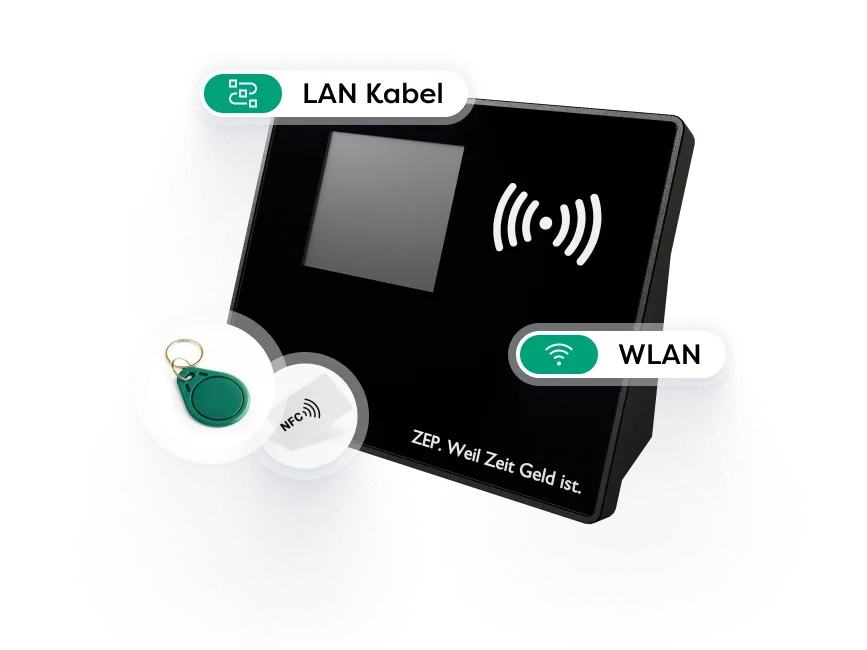
30 days non-binding
FAQ
What is ZEP?
ZEP stands for time recording for projects and offers with the products ZEP Professional and ZEP Compact a powerful and intuitively operable software solution for the Project time tracking, travel expense accounting, project planning, project controlling, resource planning, invoicing and much more. The third product ZEP Clock is the software for working time recording.
Why record working time?
Time recording is an essential part of any business to document employees' hours, evaluate them and then bill them correctly. Time tracking software replaces the traditional time clock and enables your employees to record their working hours easily and accurately. With the range of functions of our time recording system, you always keep an overview, e.g. of absences & project times.
Is working time recording compulsory?
With our time recording system, all judicial requirements of the ECJ as well as the specifications of the Federal Labour Court of September 2022 fulfilled. With our software solution, your time management is already legally compliant.
Is there a working time recording app?
Yes, ZEP Working Time Recording works on smartphone, tablet and desktop. For the smartphone and tablet, there is the ZEP Clock app in the App Store and Google Play Store.
How expensive is a time recording system?
ZEP Clock is available from €1.50 per user. Find out more in our Price calculator.
Which systems can ZEP be integrated into?
In an increasingly digitalised corporate world, we want to ensure that ZEP harmonises with the rest of your IT infrastructure. In addition to our standardised ZEP interfaces (SOAP & REST), we are therefore constantly integrating new partners with direct interfaces. From Hubspot and Personio to Salesforce for data exchange with the rest of the world. Find out everything about ZEP interfaces here.
How must working hours be documented?
The Federal Ministry of Labour and Social Affairs gives employers a free hand in choosing their method of electronic working time recording. In accordance with the judgement on working time recording, employers who have not previously recorded working times are now obliged to encourage their employees to register themselves. The options for this are diverse: from already established electronic time recording devices to the use of apps on mobile devices or working time recording software on laptops as well as the traditional Excel spreadsheet. The use of electronic shift schedules to record working hours is also conceivable, as long as they show the start and end times and the duration of each employee's daily working hours. However, it is not permitted to simply use a scan of a paper document that has already been completed, as this does not fulfil the requirements for electronic recording, but merely corresponds to electronic archiving.
What functions does ZEP time recording offer?
- Seamless and immediate time tracking of employees
- Fast evaluation possibilities of working times
- Exporting evaluations as PDF, Word or OpenOffice
- Inclusive break arrangements
- Zero installation, zero risk, 100% Cloud
- Legally compliant documentation of working hours
ZEP Clock fulfils the requirements of the legislation on compulsory time recording as well as the Minimum Wage Act (MiLoG), which has been in force since 1.1.2015 and stipulates in §17 the obligation to record time for marginally employed employees (mini-jobs).
What will change for employees in terms of time recording in 2024?
The German government is currently examining the implementation of a law on recording working hours, including for smaller companies, in order to avoid bureaucracy. The results are not expected to be published until the second quarter of 2024. This process is delaying the introduction of the expected law. The government is waiting for the results of a project to introduce working time recording for small companies so as not to place an excessive burden on them. A new bill will probably not be drafted until these results have been analysed. One controversial point is the planned obligation to record working hours electronically in the current draft bill, which has not yet led to a harmonised bill. There is also discussion about linking the recording of working hours with a flexibilisation of working hours, as demanded by the FDP. Nevertheless, following the ECJ judgement, time recording has been mandatory in Germany since 2019!
